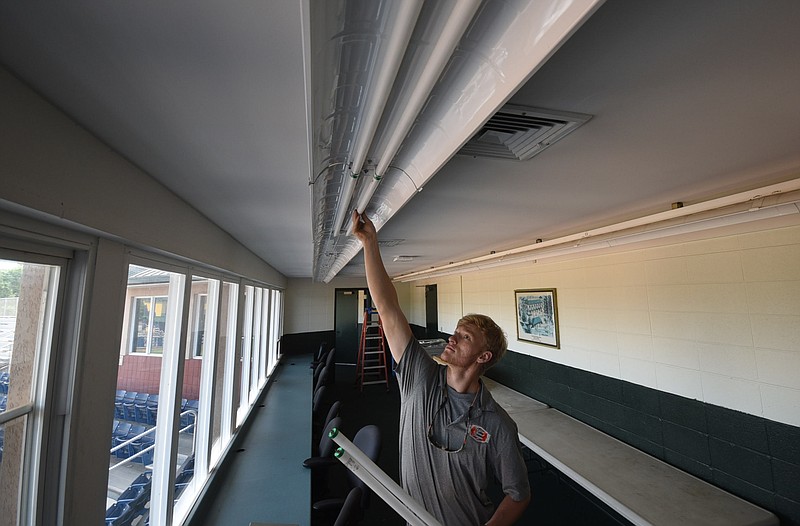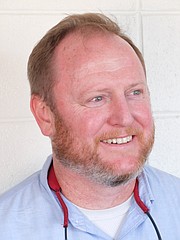Chattanooga has cut its energy use by 30% in the past five years, making the city a leader in the national Better Building initiative.
Through energy-efficient lighting, new and improved heating and cooling systems and improved operations at the Moccasin Bend Sewage plant, the city of Chattanooga has cut its use of energy by 30% since 2013 and city officials are looking for more savings in the future. In a recent report by the U.S. Department of Energy on its Better Buildings challenge, Chattanooga ranked the best among 25 challenge participants in achieving the greatest savings in energy use intensity.
Erik Schmidt, director of sustainability for the city, said the Better Building challenge runs through 2025 and the city is eager to make even more improvements even though Chattanooga has already exceeded the nationwide goal set by the U.S. Department of Energy to cut energy use by 20 percent in public buildings in a decade.
"We're going to continue to monitor, measure and report our results and just because we got to this goal six years early doesn't mean we stop looking at it," Schmidt said. "This is a business culture change and is now part of our thinking in how we manage all of our city facilities."
On Tuesday, crews from Tri-State Electrical Contractors were installing new fluorescent lighting in the press box of the Frost softball field at Warner Park. The new lighting is expected to cut energy use in half, Schmidt said.
Chattanooga made similar energy improvements at its downtown library, where the city spent $1.5 million for new LED lighting, a new heating and cooling system and other roofing and insulation improvement to cut energy use in the 3-story building by more than 40%. In the renovated library, 100 energy-efficient LED lights produce more lighting than the 800 fluorescent tubes they replaced, city spokeswoman Richel Albright said.
The city is spending $1.4 million to install LED lighting in 61 of its primary buildings to achieve its energy reduction goals, Schmidt said.
The city of Chattanooga has about 200 city buildings which collectively have more than 2 million square feet and so far have cut energy use by more than 17 %.
Schmidt said the first step was benchmarking - "you can't manage what you don't measure "- and the next step was "retrocommissioning" or tuning HVAC and lighting to run at maximum efficiency. Building automation systems also are used to cut off lighting and dial down HVAC systems outside of normal office hours.
"Ideally, we are achieving these savings without anyone noticing a difference in their work environment," Schmidt said. "This is not only saving energy, it also helps to prolong the life of the equipment," Schmidt said.
At Chattanooga City Hall, for instance, energy use has been cut 29% though improved lighting and building operations, cutting the previous $101,870 annual power bill by $29,665.
The city has made even bigger upgrades at its biggest energy user, the Moccasin Bend Sewage Treatment Plant where energy consumption has been cut by well over 30%. The city is planning for even more energy savings at its sewage plant with water treatment pond improvements and the installation of a new 3-megawatt solar farm to be built by next spring to generate about 8% of the power used in treating sewage at the city plant.
"What this has shown us is that through careful, methodical measurement and management and following the steps of an effective building management tool you can achieve real savings," Schmidt said.
Contact Dave Flessner at dflessner@timesfreepress.com or at 757-6340.

